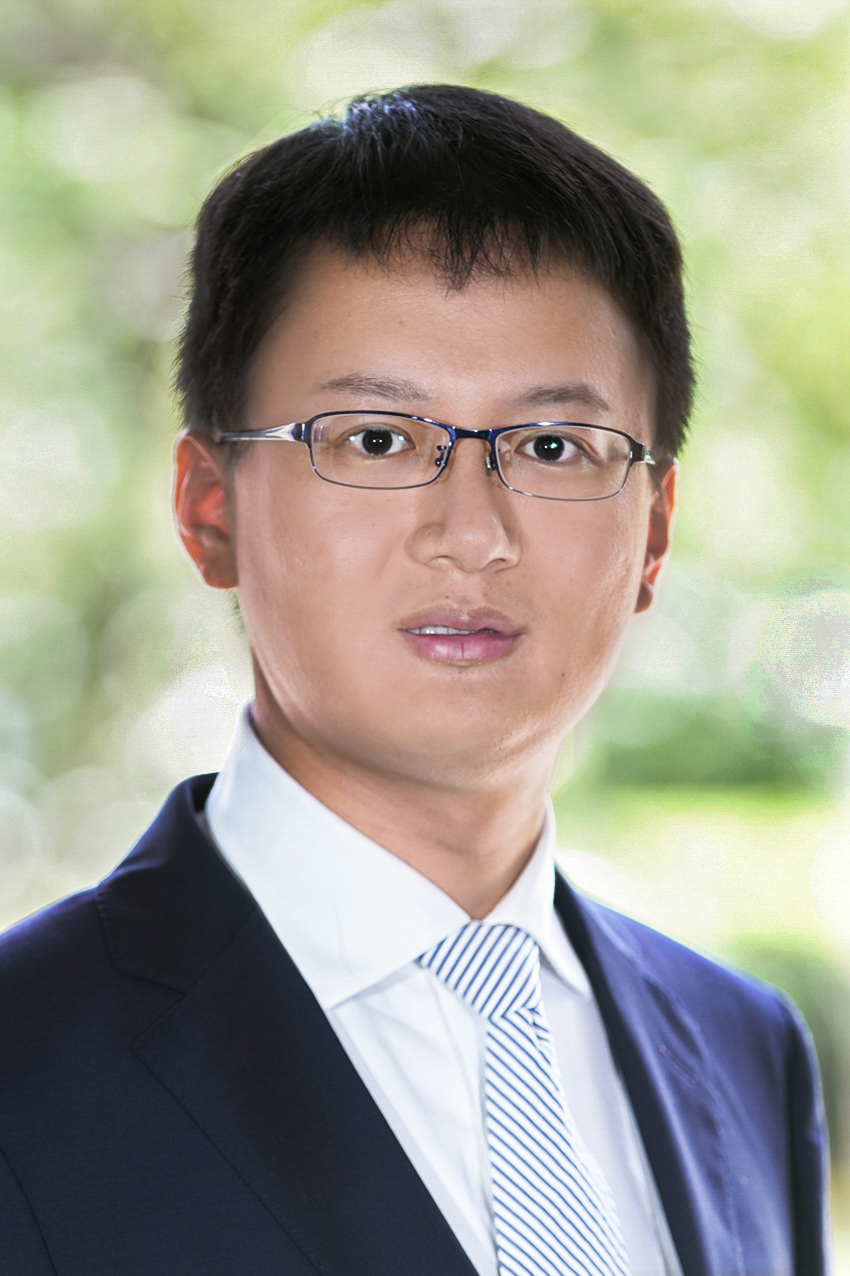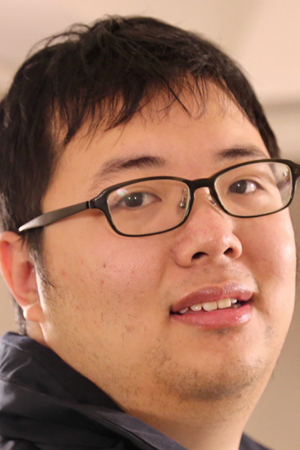NYU Shanghai, in partnership with the NYU Graduate School of Arts and Science and the NYU Center for Data Science, invites applications from exceptional students for PhD study and research in Data Science.
Participating students are enrolled in the NYU GSAS Data Science PhD program, complete their coursework at the NYU Center for Data Science in New York, and then transition to full-time residence at NYU Shanghai where they undertake their doctoral research under the supervision of NYU Shanghai faculty.
Highlights of the Program
- NYU degree upon graduation
- Graduate coursework at the NYU Center for Data Science in New York
- Research opportunities with and close mentorship by NYU Shanghai faculty
- Access to the vast intellectual resources of NYU GSAS and NYU Center for Data Science
- Cutting-edge research environment at NYU Shanghai, including the Center for Data Science and Artificial Intelligence, a thriving community of PhD students, post-doctoral fellows, and research associates, activities such as a regular program of seminars and visiting academics, and links with other universities within and outside China
- Financial aid through the NYU Shanghai Doctoral Fellowship, including tuition, fees, and an annual stipend
- Additional benefits exclusive to the NYU Shanghai program, including international health insurance and travel funds
Supervising Faculty

Mathieu Laurière
Computational Methods, Optimal Control, Game Theory, Partial Differential Equations, Stochastic Analysis, Deep Learning, Reinforcement Learning

Shuyang Ling
Applied Mathematics, Optimization, Probability, Signal Processing, Mathematics of Data Science, Machine Learning

Chen Zhao
Natural Language Processing, Human-Computer Interaction, Machine Learning
Recent Publications by NYU Shanghai Faculty
Mathieu Laurière
Carmona, R., Cooney, D., Graves, C., and Laurière, M. Stochastic Graphon Games: I. The Static Case. To appear in Mathematics of Operations Research (2021)
Carmona, R., and Laurière, M. Convergence analysis of machine learning algorithms for the numerical solution of mean field control and games: I - the ergodic case. To appear in SIAM Journal on Numerical Analysis (2021)
Achdou, Y., Laurière, M., and Lions, P.-L. Optimal control of conditioned processes with feedback controls. Journal de Mathématiques Pures et Appliquées (2020)
Elie, R., Pérolat, J., Laurière, M., Geist, M., and Pietquin, O. On the convergence of model free learning in mean field games. In 34th AAAI Conference on Artificial Intelligence, AAAI 2020
Perrin, S., Pérolat, J., Laurière, M., Geist, M., Elie, R., and Pietquin, O. Fictitious play for mean field games: Continuous time analysis and applications. In 34th Conference on Neural Information Processing Systems, NeurIPS 2020 (2020)
Shuyang Ling
Strong consistency, graph Laplacians, and the stochastic block model. S Deng, S Ling, T Strohmer. The Journal of Machine Learning Research 22 (117), 1-44
When do birds of a feather flock together? k-means, proximity, and conic programming. X Li, Y Li, S Ling, T Strohmer, K Wei. Mathematical Programming, Series A 179 (1), 295-341
Shuyang Ling, Ruitu Xu, Afonso S. Bandeira. On the landscape of synchronization networks: a perspective from nonconvex optimization, SIAM Journal on Optimization, Vol.29, No.3, pp.1879-1907, 2019.
Shuyang Ling and Thomas Strohmer. Certifying global optimality of graph cuts via semidefinite relaxation: A performance guarantee for spectral clustering, Foundations of Computational Mathematics, 2019.
Xiaodong Li, Shuyang Ling, Thomas Strohmer, and Ke Wei. Rapid, robust, and reliable blind deconvolution via nonconvex optimization. Applied and Computational Harmonic Analysis, Volume 47, Issue 3, pp.893-934, 2019.
Shuyang Ling and Thomas Strohmer. Blind deconvolution meets blind demixing: algorithms and performance bounds. IEEE Transactions on Information Theory, Vol.63, No.7, pp.4497 - 4520, Jul 2017.
Shuyang Ling and Thomas Strohmer. Self-calibration and biconvex compressive sensing. Inverse Problems, Vol. 31(11): 115002, 2015.
Chen Zhao
Zhao, C., Su, Y., Pauls, A., & Platanios, E. A. Bridging the generalization gap in text-to-SQL parsing with schema expansion. ACL 2022.
Zhao, C., Xiong, C., Boyd-Graber, J., & Daumé III, H. (2021). Distantly-supervised evidence retrieval enables question answering without evidence annotation. EMNLP 2021.
Zhao, C., Xiong, C., Qian, X., & Boyd-Graber, J. . Complex factoid question answering with a free-text knowledge graph. WWW 2020.
Zhao, C., Xiong, C., Rosset, C., Song, X., Bennett, P., & Tiwary, S. (2020). Transformer-xh: Multi-evidence reasoning with extra hop attention. ICLR 2020.
Selected Faculty Features
"Zhao Chen: Computer Science and Competitive Bridge" (Chen Zhao)
"Harnessing the Power of Data Science and AI" (Center for Data Science and AI )
"NYU Shanghai Establishes New Data Science PhD" (Shuyang Ling)
"Q&A with Data Science Professor Ling Shuyang" (Shuyang Ling)
Structure of Program
Participating students complete the PhD degree requirements set by the NYU Center for Data Science and in accordance with the academic policies of NYU GSAS. Each student develops an individualized course plan in consultation with the Director of Graduate Study at the NYU Center for Data Science and the student’s NYU Shanghai faculty advisor. A typical sequence follows:
in Shanghai
border
Begin program with funded research rotation, up to 3 months preceding first Fall semester, to familiarize with NYU Shanghai and faculty as well as lay a foundation for future doctoral study.
(Fall and Spring)
in New York
border
Pursue PhD coursework at NYU Center for Data Science alongside other NYU PhD students.
in Shanghai
border
Return to Shanghai for second funded research rotation to solidify relationships with NYU Shanghai faculty and make further progress in research.
through Year 5
in Shanghai
border
Under supervision of NYU Shanghai faculty advisor, pursue dissertation research and continue coursework. Depending on each student’s individualized course of study, return visits to New York may also occur. Complete all required examinations and progress evaluations, both oral and written, leading up to submission and defense of doctoral thesis.
To learn more about the NYU Data Science PhD program degree requirements, please visit this page.
Current Students
| Name | Research Areas |
| Yulin Chen | Natural Language Processing, Understanding Language Models |
| Wanli Hong | Theoretical Data Science, Group Synchronization, Optimal Transport |
| Hongjun Liu | Retrieval Augmented LLM, NLP+Science |
| Jiayang Yin | Stochastic Analysis, Machine Learning, Deep Learning |
| Ziliang Zhong | Optimization, Machine Learning |
Application Process and Dates
Applications are to be submitted through the NYU GSAS Application portal, within which students should select the Data Science PhD as their program of interest, and then indicate their preference for NYU Shanghai by marking the appropriate checkbox when prompted. Applicants will be evaluated by a joint admissions committee of New York and Shanghai faculty. Application requirements are set by the NYU Center for Data Science and are the same as those for all NYU PhD applicants, no matter their campus preference; however, candidates are recommended to elaborate in their application and personal statements about their specific interests in the NYU Shanghai program and faculty.
For admission in Fall 2025, the application deadline is December 5, 2024.
Contact Us
Interested students are welcome to contact Vivien Du, PhD Program Manager, via email at shanghai.phd@nyu.edu with any inquiries or to request more information.

